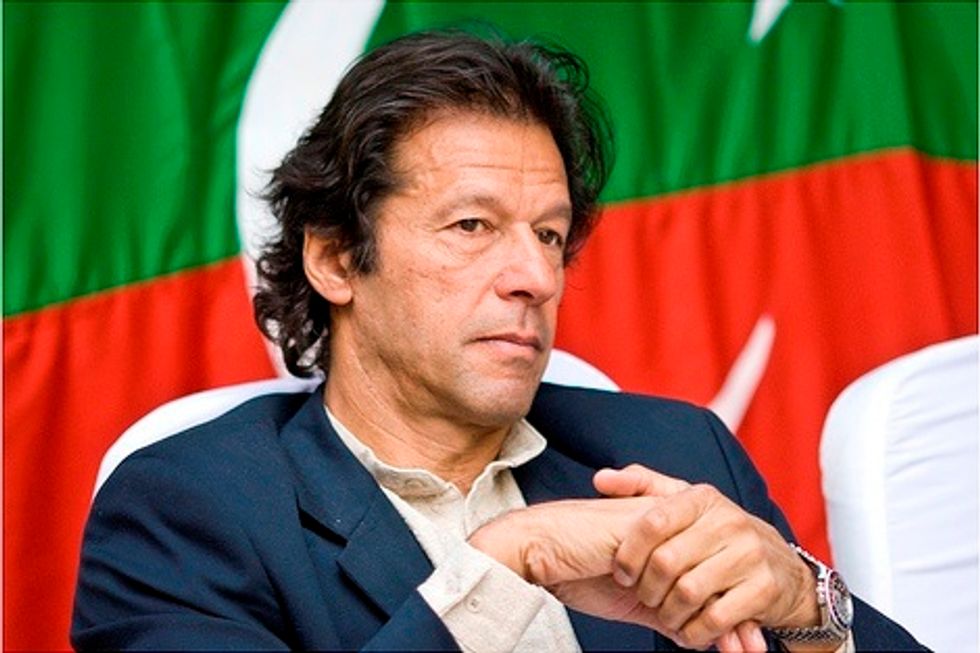Pakistan—a not-so-quiet country situated next to India and once a part of the Indian subcontinent. As someone who lived in Pakistan for a few years, and whose entire family is practically living there, I like to invest a certain level of interest in Pakistani politics.
However, the political changes that have just swept Pakistan have likely caught the attention of even the most casual observer.
Pakistan recently had its elections, and Nawaz Sharif, the current Prime Minister, and his party Noon League lost favor to—surprise, surprise—the party Tehreek-e-Insaaf with party leader Imran Khan being elected Prime Minister.
Imran Khan is something of an enigma, which only adds to his charisma, I suppose; he was once a cricket captain that led the Pakistani team into victory, but for the past several years has shifted his goals to the political playing ground with generally unfavorable results.
Now that he finally has come into power, it seems the dreams of young and old, rich and poor, have materialized in the shape of a new Pakistan. Imran Khan can stop the attacks; Imran Khan can bring the criminals to justice. I'll say this—I wouldn't want to be the person with such seemingly unattainable goals plastered like a to-do list to my back.
I'm not trying to downplay his achievements or my faith in them; in fact, I would have voted for him myself and done so proudly because he seems like the only candidate capable of bringing the fresh changes a country like Pakistan needs. Considering the remainder of the options included the military and a man who was just prosecuted and ended up in jail, I think we need to be more sensible about what sort of hopes we're attaching.
The weekend Imran Khan was elected, I attended a celebration here in Houston held by PTI sympathizers and supporters. There was cake, singing and traditional dancing and lots and lots of noise—your typical Pakistani congratulations party. It didn't stop at one party; celebrations were carried out throughout the weekend, and this is just Houston I'm talking about, which, last I checked, isn't even included within Pakistan's national borders.
It's alright to celebrate, but throwing party after party is not likely to help Imran Khan accomplish any of his stated goals or any of what we should be looking forward to seeing in a new Pakistan.
I understand that Houstonians, among other Pakistani-Americans, are patriotic, and I think it's wonderful to show some traditional cheer from overseas, but if we're that eager to fly the banners of patriotism, we can do more for Imran Khan and more importantly, for Pakistan, than eat green-and-white cake and dance a bhangra.
There is still contention about the election results because of allegations of polls being rigged (sound familiar, anyone?), and while his speech was certainly epic, sensible and worthy of a country's Prime Minister, Imran Khan has a lot to do if he plans to transform speech into action because politics can't stop at pretty words.
Words won't change Pakistan, and what the people of Pakistan and Pakistani-Americans need to understand is that the citizenry will also need to be part of the change.
Yes, I'm somewhat cynical of Imran Khan's success, not only because making promises come easily to politicians and Pakistan's past is filled with corruption but because the sort of change we have imagined for Pakistan is too much for one person to achieve, especially in a span of a few years.
However, I never said it was impossible.
Imran Khan needs to show us that he's more than a handsome face with fancy words—just like how he drove the Pakistani Cricket Team to success, he needs to show us what he can do. The citizenry needs to finish up with their cake and get ready to pitch in because corruption isn't erased in a day, and changing the country doesn't take one man—it takes a nation.



















